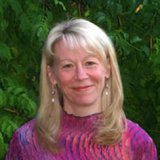 EUGENE, Ore. -- (May 3, 2011) -- University of Oregon chemist Geraldine "Geri" Richmond is among 72 U.S. scientists elected into membership of the National Academy of Sciences.
EUGENE, Ore. -- (May 3, 2011) -- University of Oregon chemist Geraldine "Geri" Richmond is among 72 U.S. scientists elected into membership of the National Academy of Sciences.
Richmond joins six other UO faculty among the academy's current roster of 2,000 active members. Membership in the NAS is one of the highest honors given to a scientist or engineer in the United States. The new members will be inducted into the academy next April during its 149th annual meeting in Washington, D.C.
Richmond joined the UO faculty in 1985 and is the UO's Richard M. and Patricia H. Noyes Professor. Work in her laboratory has pioneered the use of lasers and theoretical molecular modeling in the study of liquid surfaces. She explores the chemical and physical processes in environmental, biological and materials science.
Richmond is the co-founder and chair of Committee on the Advancement of Women Chemists, an organization that develops and provides professional development programs for women in technical fields. Her efforts have earned her the Presidential Award for Excellence in Science and Engineering Mentoring (1997), the American Chemical Society Award for Encouraging Women in the Chemical Sciences (2005) and the Council on Chemical Research Diversity Award (2006).
Richmond was also recently named the 2011 Joel Henry Hildebrand Award In The Theoretical & Experimental Chemistry Of Liquids from The American Chemical Society.
Richmond received a bachelor's degree in chemistry in 1975 at Kansas State University and a doctorate in chemical physics in 1980 at the University of California, Berkeley.
The NAS is a private, non-profit honor society of distinguished scholars dedicated to furthering science and technology for the general welfare. Established in 1863, the academy has served to "investigate, examine, experiment, and report upon any subject of science or art" whenever called upon to do so by any department of the government.
The other six active NAS members from the UO, with field and year of election, are Terrell Hill, biophysics and computational biology, 1965; Franklin Stahl, genetics, 1976; Peter von Hippel, biochemistry, 1978; Michael Posner, psychological and cognitive sciences, 1981; John Schellman, biophysics and computational biology, 1982; and Brian Matthews, biophysics and computational biology, 1986.